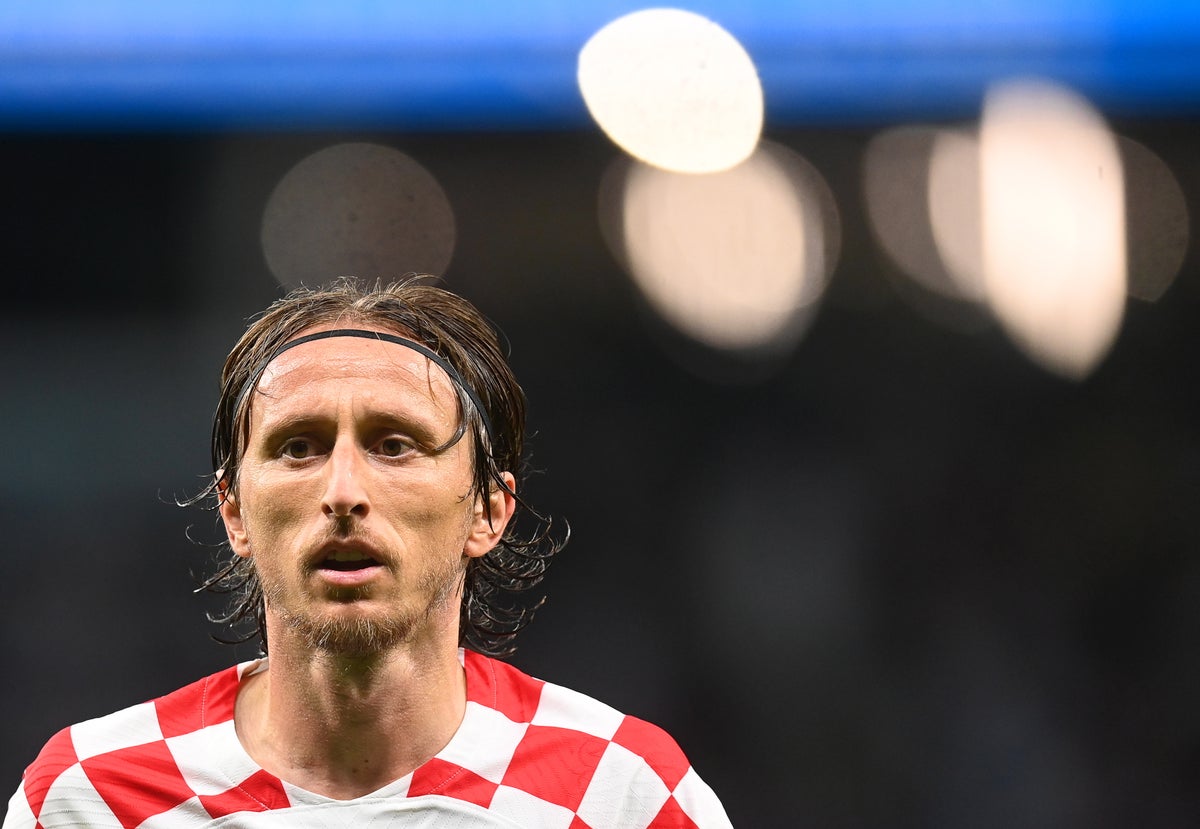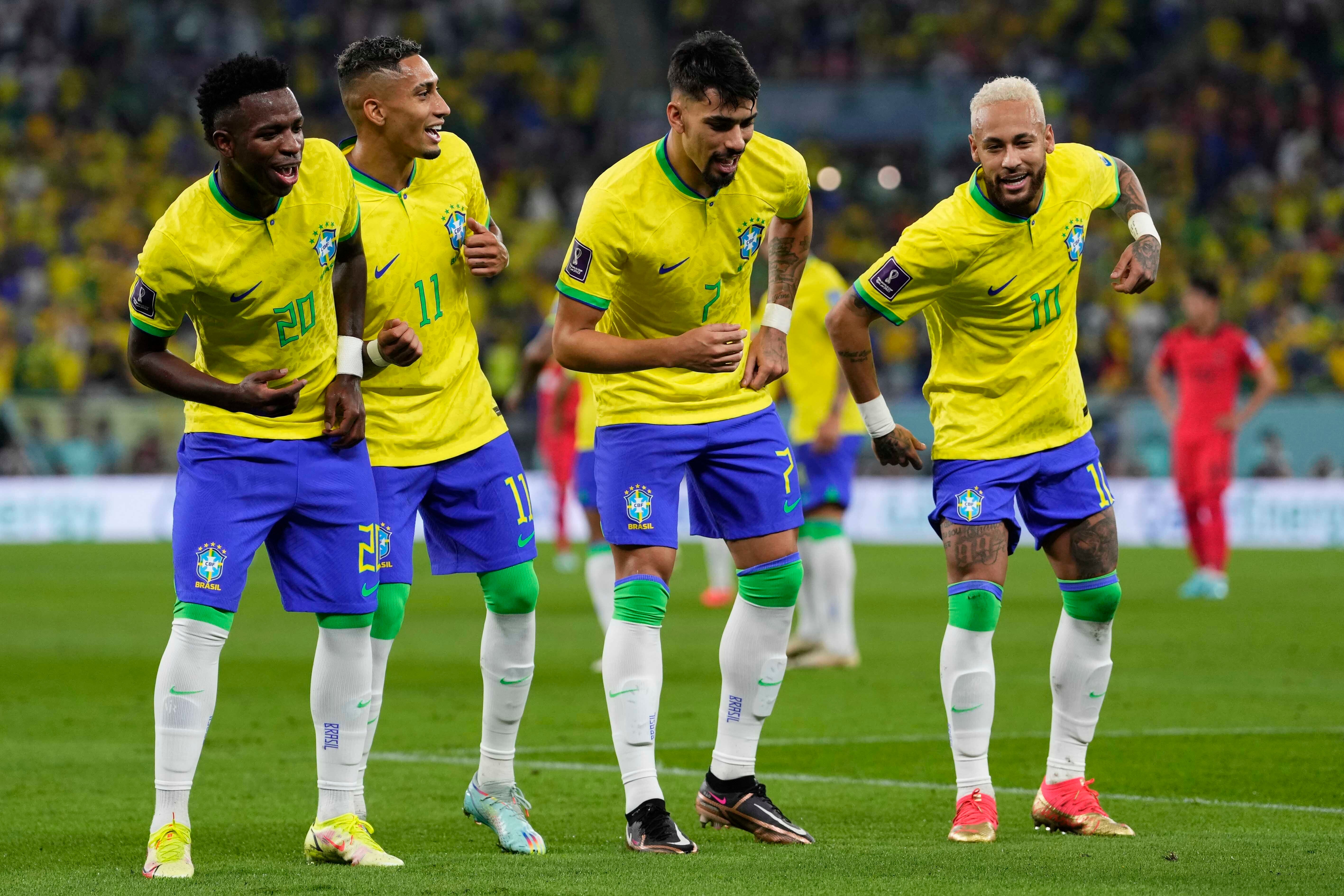
There is an argument that says Brazil against Croatia is the most imbalanced of the four quarter-finals, that says a World Cup giant should swat aside a small nation punching above its weight without fuss. It could be tempting to jump ahead at this point, to trace the lines and feel a jolt of anticipation at the possibility of Brazil colliding with Argentina in the semi-finals, should all go to form.
But the beauty of a World Cup is that each stage is its own distinct challenge, and for all Brazil’s momentum, Croatia are their first serious test. That is not to disparage those who’ve come before: Serbia and Switzerland made decent fists of their group-stage defeats, Cameroon beat a much-changed XI, before Brazil blitzed South Korea in the last-16. But now there are eight nations left, and Tite’s favourites finally face a battle-hardened team who know exactly what it takes to grind through the knockout rounds.
If this is to be a match of moments, a night lit up by pieces of individual magic, then we already know it will be Brazil’s game, samba-ing their way into the semi-finals. Croatia have a different recipe for success: seven of their past eight knockout ties at major tournaments lasted a full 120 minutes; five of those went to penalties and their past four World Cup knockout wins all went to extra time. If Croatia are going to beat Brazil on Friday night, they will almost certainly need to duck and weave and find a way to last the distance.
“We have proven our mental strength and shown consistency in extra time and penalty shootouts,” said captain Luka Modric on Thursday. “Our last match [beating Japan on penalties] gave us self-confidence to know we can do it again. We are prepared for everything.”
Croatia present Brazil with a unique problem to solve after the soft-centred Korea. The words Tite and his coaching staff kept using on Thursday to describe their next opponents were “persistent” and “resilient”. Croatia manager Zlatko Dalic talked of adopting “an aggressive attitude” to keep Brazil’s carousel of attacking talent under tight control. “We must try to restrain them. We have to be strong, aggressive, assertive, and not let them out of our sight.”
Perhaps that is tacit admission of a gulf in technical quality - Modric readily admits that this iteration of Croatia is “not as good as our team in Russia” - but what Croatia do have over their more nimble opponents is valuable, rare experience. A handful of their regular contributors in Qatar have reached a World Cup final, and no Brazilian here can say that. It is a blessing and a curse; Croatia still rely heavily on those ageing mainstays - Modric (37), Ivan Perisic (33), Dejan Lovren (33), Andrej Kramaric (31), Marcelo Brozovic (30) - and the oldest team left in the tournament will not win many foot-races against Vinicius Jr, Raphinha, Neymar and Richarlison.
“Brazil are the fastest and best team at this World Cup,” said coach Dalic. “We must not leave them too much space. If we play wide we’ll have great problems. But on the other hand we know that when they lose the ball they have high pressing and if they do not take control of the ball in the next couple of seconds they have problems, so we’ll try to take that into account. Our concentration must not fail us.”

Croatia must find a way to take control with the ball and carefully cajole without it. They will have to sustain spells of possession to take the sting out of the game and close spaces and block channels when Brazil raise the tempo. Four years ago Croatia’s default was to dictate, Modric gently moulding matches to his will, always just out of reach of the midfielder chasing his shadow. Now they must use all their tools to disturb and disrupt the World Cup’s outstanding team, most likely across 120 gruelling minutes.
Dalic has watched Brazil’s games carefully: he believes Switzerland did the best job, succumbing only to that late Casemiro goal, and that theirs is the blueprint to follow. “The Swiss were the most compact and offered the best resistance. OK, Cameroon won, but Brazil played a different team. We have to copy the model of Switzerland.”
And Modric’s inside intelligence might be a useful weapon too, as a former midfield partner to Casemiro and a current teammate of Vinicius at Real Madrid. “We have a difficult task tomorrow to try to stop him, so of course I will give some advice to my teammates,” Modric said of the 22-year-old Vinicius. “If I can help them by giving them a tip here and there to make his job more difficult, I will do that. We are fighting for our countries.” Croatia will hope it is long, drawn out fight.







